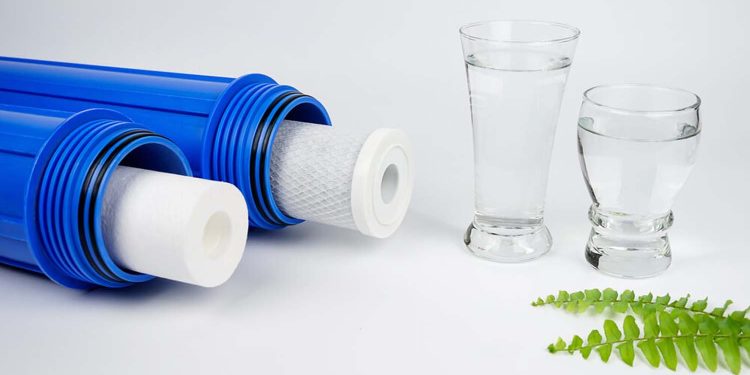Introduction to Water Filters
Welcome to the ultimate guide on water filters! Whether you’re concerned about the quality of your tap water or simply looking for a way to enhance its taste, this comprehensive article will cover everything you need to know about water filters general. From understanding the different types available in the market to learning how they can benefit your overall health and well-being, we’ve got you covered!
Water is an essential resource that sustains life, but unfortunately, it’s not always as clean and pure as we would like it to be. Contaminants such as bacteria, chemicals, sediments, and even heavy metals can find their way into our drinking water. This is where water filters come into play – they act as guardians of our hydration by removing impurities and ensuring that what reaches our glasses is safe and refreshing.
So if you’re ready to dive deep into the world of water filtration systems, let’s get started! By the end of this guide, you’ll have all the knowledge necessary to make an informed decision when choosing a water filter for your home. Get ready for clearer waters ahead!
Types of Water Filters General
Water filters general come in various types, each designed to target specific contaminants and provide clean, safe drinking water. Understanding the different types of water filters available can help you make an informed decision when choosing one for your home.
1. Carbon Filters: These are the most common type of water filters and effectively remove chlorine, sediment, and organic compounds. They work by adsorbing impurities onto activated carbon.
2. Reverse Osmosis Filters: RO filters use a semipermeable membrane to remove dissolved solids, heavy metals, and other pollutants from water. They are highly effective but may also remove essential minerals.
3. UV Filters: Ultraviolet (UV) filters use UV light to kill bacteria and viruses present in the water. They are often used as a secondary treatment method along with other types of filters.
4. Ceramic Filters: These filters have microscopic pores that trap sediments, bacteria, protozoa, and some chemicals from the water while allowing beneficial minerals to pass through.
5. Distillation Systems: Distillers heat water to create steam which is then condensed back into liquid form leaving behind contaminants like heavy metals and chemicals.
6. Ion Exchange Resin Filters: These filters replace harmful ions such as lead or copper with less harmful ones like sodium or potassium ions through a process called ion exchange.
It’s important to consider factors such as your water source, budget, maintenance requirements, flow rate needs before selecting a specific type of filter for your home.
Benefits of Using a Water Filter
When it comes to our health and well-being, clean water is essential. We rely on water for hydration, cooking, and cleaning. However, the quality of tap water can vary greatly depending on where you live. That’s where a water filter comes in.
One of the key benefits of using a water filter is that it helps remove impurities from your tap water. These impurities can include harmful chemicals like chlorine, lead, and pesticides. By filtering out these contaminants, you can ensure that the water you drink and use in your everyday activities is clean and safe.
Not only does a water filter improve the taste and smell of your drinking water by reducing unpleasant odors and flavors caused by chlorine or other contaminants, but it also provides peace of mind knowing that you are consuming cleaner water.
Additionally, using a water filter can save you money in the long run. Instead of constantly buying bottled water or relying on expensive filtration systems for individual appliances like refrigerators or faucets with built-in filters, investing in a whole-house or countertop filtration system can be more cost-effective over time.
Moreover, using a water filter is not just beneficial for our bodies but also for the environment. Plastic bottles used to package bottled drinking waters contribute significantly to pollution levels worldwide. By switching to filtered tap water instead of purchasing single-use plastic bottles regularly, we reduce waste production while still enjoying clean drinking water.
Finding the right type of filter that suits your need is crucial to ensure a steady supply of clean and healthy drinking water for a water filter offers numerous benefits, including improved water quality, cost-effectiveness, and environmental sustainability. It’s a wise investment for any household looking to ensure the health and well-being of its members.In today’s world, where we are increasingly concerned about the quality of our drinking water, using a water filter has become more important than ever. Not only does it help to remove impurities and contaminants from tap water, but it also improves the taste and odor of the water we consume. With so many types of water filters available on the market, there is surely one that suits your needs.
By investing in a high-quality water filter, you can enjoy numerous benefits. First and foremost, it ensures that you are consuming clean and safe drinking water free from harmful substances such as bacteria, viruses, heavy metals, pesticides, chlorine, and other pollutants. This is especially crucial for individuals with compromised immune systems or those who live in areas with poor water quality.
Furthermore, using a water filter can save you money in the long run. Instead of buying bottled water regularly or relying on expensive filtration jugs or pitchers that require frequent cartridge replacements, a permanent whole-house or under-sink system can provide filtered water throughout your home at a fraction of the cost.
Another advantage of using a water filter is its positive impact on the environment. By reducing your reliance on single-use plastic bottles and disposable filtration products like cartridges or pitcher filters, you contribute to minimizing plastic waste and lowering carbon emissions associated with their production and transportation.
How to Choose the Right Water Filter for Your Home
Choosing the right water filter for your home is crucial to ensure that you and your family have access to clean and safe drinking water. With so many options available in the market, it can be overwhelming to make a decision. However, armed with the knowledge of different types of water filters and their benefits, you are now equipped to make an informed choice.
Consider factors such as the source and quality of your tap water, your budget, and any specific contaminants or impurities you want to target. Research various brands and models, read customer reviews, and compare features before making a final decision.
Remember that investing in a high-quality water filter is an investment in your health. So take your time, do thorough research, and choose wisely. By doing so, you can enjoy the peace of mind knowing that every glass of water you drink is clean, pure, and free from harmful substances.






























